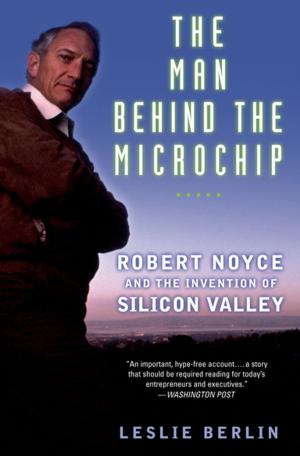The Long Tomorrow
How Advances in Evolutionary Biology Can Help Us Postpone Aging
Nonfiction, Health & Well Being, Medical, Specialties, Geriatrics, Family & Relationships, Aging, Science & Nature, Science, Biological Sciences, Evolution| Author: | Michael R. Rose | ISBN: | 9780190292553 |
| Publisher: | Oxford University Press | Publication: | September 15, 2005 |
| Imprint: | Oxford University Press | Language: | English |
| Author: | Michael R. Rose |
| ISBN: | 9780190292553 |
| Publisher: | Oxford University Press |
| Publication: | September 15, 2005 |
| Imprint: | Oxford University Press |
| Language: | English |
The conquest of aging is now within our grasp. It hasn't arrived yet, writes Michael R. Rose, but a scientific juggernaut has started rolling and is picking up speed. A long tomorrow is coming. In The Long Tomorrow, Rose offers us a delightfully written account of the modern science of aging, spiced with intriguing stories of his own career and leavened with the author's engaging sense of humor and rare ability to make contemporary research understandable to nonscientists. The book ranges from Rose's first experiments while a graduate student--counting a million fruit fly eggs, which took 3,000 hours over the course of a year--to some of his key scientific discoveries. We see how some of his earliest experiments helped demonstrate that "the force of natural selection" was key to understanding the aging process--a major breakthrough. Rose describes how he created the well-known Methuselah Flies, fruit flies that live far longer than average. Equally important, Rose surveys the entire field, offering colorful portraits of many leading scientists and shedding light on research findings from around the world. We learn that rodents given fifteen to forty percent fewer calories live about that much longer, and that volunteers in Biosphere II, who lived on reduced caloric intake for two years, all had improved vital signs. Perhaps most interesting, we discover that aging hits a plateau and stops. Popular accounts of Rose's work have appeared in The New Yorker, Time magazine, and Scientific American, but The Long Tomorrow is the first full account of this exciting new science written for the general reader. "Among his peers, Rose is considered a brilliantly innovative scientist, who has almost single-handedly brought the evolutionary theory of aging from an abstract notion to one of the most exciting topics in science."--Malcolm Gladwell, The New Yorker
The conquest of aging is now within our grasp. It hasn't arrived yet, writes Michael R. Rose, but a scientific juggernaut has started rolling and is picking up speed. A long tomorrow is coming. In The Long Tomorrow, Rose offers us a delightfully written account of the modern science of aging, spiced with intriguing stories of his own career and leavened with the author's engaging sense of humor and rare ability to make contemporary research understandable to nonscientists. The book ranges from Rose's first experiments while a graduate student--counting a million fruit fly eggs, which took 3,000 hours over the course of a year--to some of his key scientific discoveries. We see how some of his earliest experiments helped demonstrate that "the force of natural selection" was key to understanding the aging process--a major breakthrough. Rose describes how he created the well-known Methuselah Flies, fruit flies that live far longer than average. Equally important, Rose surveys the entire field, offering colorful portraits of many leading scientists and shedding light on research findings from around the world. We learn that rodents given fifteen to forty percent fewer calories live about that much longer, and that volunteers in Biosphere II, who lived on reduced caloric intake for two years, all had improved vital signs. Perhaps most interesting, we discover that aging hits a plateau and stops. Popular accounts of Rose's work have appeared in The New Yorker, Time magazine, and Scientific American, but The Long Tomorrow is the first full account of this exciting new science written for the general reader. "Among his peers, Rose is considered a brilliantly innovative scientist, who has almost single-handedly brought the evolutionary theory of aging from an abstract notion to one of the most exciting topics in science."--Malcolm Gladwell, The New Yorker















